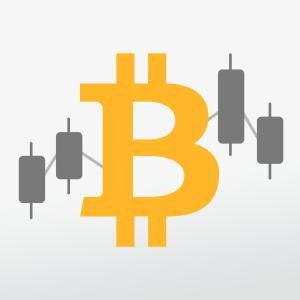As a decentralized digital currency, bitcoin is generated from the well-known block chain technology. In essence, this technology is a common ledger book, which can automatically and automatically verify and record high-capacity transactions in digital way.
Entrepreneurs have believed that more and more industries will be transformed by this technology. Transactions in many business cases have been verified and organized by a centralized platform that will no longer require centralized managers, and will still be able to withstand fraud. Both large companies and small companies have many ways to try to use the power of block chains.

1, the banking industry
In essence, the bank is a secure storage repository and value exchange center, and block chain as a digital, safe and tamper proof ledger can achieve the same effect. In fact, the Swiss bank UBS and Barclays Bank in the UK have already started the experiment, hoping to use it as a way to accelerate the back-end system functions and clearing capacity. Some institutions in the banking sector claim that block chains may reduce the median cost by 20 billion. It's not surprising that banks, as part of an increasing number of financial services giants, are investing in block chain entrepreneurship. R3CEV, the financial consortium, already has 50 companies that are developing customized block chains for the financial sector. Thought Machine has developed a banking system called Vault OS (see above), based on private chain technology and encrypted ledger books. Banks can adapt to this secure point to point financial system no matter how long or how large they are.
2, payment and cash transactions
In a recent article published by Forbes, the world economic forum claims that centralized payment technology, like bitcoin, can change the "business architecture" because of the cash transaction model. Today's architecture has been fixed for more than 100 years.
Because of the block chain, it is felt that we might bypass these unwieldy systems and create a more direct payment stream that can be paid at home or across borders without requiring intermediaries to pay at very low rates and almost instantaneously. As shown above, it is a start-up company that is using block chain technology to serve global bitcoin and cash transactions based on block chain technology.
network security
Although the account book of block chain is open, the data communication can be verified and transmitted with advanced cryptographic technology. This ensures the correct source of data, and nothing can be intercepted in the process, if the block chaining technology is more widely used, the probability of hacker attacks will be reduced, because the block chain is considered to be more reliable than many traditional systems. One of the ways that it reduces the risk of traditional network security is simply by eliminating the need for human intermediaries, by eliminating the needs of intermediaries, reducing the potential security problems, from hackers to corruption. Goldman Sachs wrote. (pictured above) is a start-up company in Estonia, focusing on enterprise network security technology based on block chain.election
Elections require voter authentication, secure preservation records, tracking votes, and trusted counters to decide who is the winner. Block chain can serve the voting process, ballot tracking and statistical votes, so that there is no voter fraud, record loss or unfair behavior. Based on the voting on the block chain, the voters will agree to the final count because they can calculate their own tickets, because the audit trail of the block chain can confirm that no ticket has been modified or deleted, and there is no unfair vote. Follow My Vote is an Kickstarter funded enterprise that is committed to building an end-to-end, verifiable online voting system.network and Internet of things
IBM and Samsung have been working on an idea, called ADEPT, using block chaining technology to form a IOT device to center the main body of the network. According to the CoinDesk website, ADEPT, as an anonymous, centralized, point to point remote sensing technology, block chain can become a public book for a large number of devices, and they will no longer need to have a centralized routing between them. Without the central control system to verify, the device will be able to anonymously transfer between them, and manage software updates, errors, or energy management. Other companies also want to integrate block chain technology in the Internet of things platform. For example, Filament is using block chaining to build a de centralized network, hoping that sensors can communicate with each other. The company has received $5 million in A round investment, and Verizon investment company and Samsung investment company are involved in this investment.

online music
In order to make online music more equitably shared by many music artists, they switched to block chaining. According to Biilbord, three companies are preparing to create a more direct payment channel for artists to solve the payment problem, and to solve the authentication problem through automated intelligent contracts. The PeerTracks system is still in development, with the aim of providing a music streaming platform that allows users to listen to music online and use block chaining techniques to pay directly to artists without an intermediary. The platform also wants to build a more direct incentive between artists and customers. Myclia, invested by Grammy award winning singer Imogen Heap, builds intelligent songs by building intelligent contracts. Block chain contracts allow artists to sell music directly to their fans without having to go through a record company. Ujo Music, led by entrepreneur Phil Barry, (pictured), says it's rebuilding the music industry based on block chain. It also wants to solve the problem of online music and pay artists. In addition to streaming media, Ujo will be a better way to categorize songs by artists and creators; at the same time, like the automated brain, use smart contracts behind the music list.insurance
Companies like AirBnB, Tujia, Wimdu offer people a way to temporarily exchange assets - including private homes, to generate value. The problem is that people are barely able to insure their assets on these platforms. With block chain startup Stratumn, DDT and payment service provider Lemonway recently released a block chain based solution called "LenderBot"". It is a micro insurance concept product designed for sharing economy, and confirms the potential of block chain applications and services in the insurance industry. LenderBot allows people to register personalized micro insurance products, and can communicate through Facebook Messenger. The goal is to insure the high value goods exchanged between individuals, while the block chain plays a third party role in the loan contract.

energy management
Energy management is another industry that has been highly centralized for a long time. In the United States, if you want to trade energy, you have to go through a trusted energy holding company, such as Duke Energy, or in the UK, or the national grid, or with the resale party already purchased from the big power company. Startups, such as Transactive Grid, this is LO3 Energy and Broolyn in the etheric body of Consensys square joint venture company, application of Ethernet square block chain technology to allow consumers to trade in to the center of the energy production structure, and allows people to effectively produce energy and energy trade between neighbors. LO3 Energy also has other projects, such as the Broolyn micro grid project, the Exergy project, which is a concept validation product that uses computers to exhaust excessive heat.